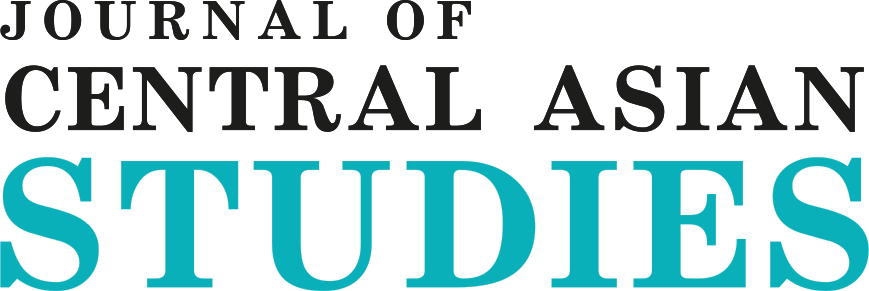Editorial Policy of the Journal
Journal management
The Journal of Central Asian Studies is a peer-reviewed, open-access academic journal released quarterly in March, June, September, and December. It is published in English by the Kazakhstan Institute for Strategic Studies under the President of the Republic of Kazakhstan. There are no processing or publication fees for authors. All costs associated with the editorial and publishing processes are covered by the publisher.
This journal utilizes Open Journal Systems 3.4.0.5, an open-source journal management and publishing software developed, supported, and freely distributed by the Public Knowledge Project under the GNU General Public License. For more information about the software, please visit PKP’s website. Please direct any questions regarding the journal management or submissions to ca_journal@kisi.kz.
Terms of publication
Manuscripts submitted for publication in the Journal of Central Asian Studies should not have been previously published by the author(s) in English or any other language, accepted for publication, or under consideration elsewhere. They should correspond to the thematic areas of the journal and strictly adhere to the requirements of the manuscript format. An author may submit only one manuscript at a time. Authors cannot submit two manuscripts to the same issue.
The manuscript shall be submitted to the electronic (online) platform OJS by the corresponding author at least two months before the journal's next issue is published. Please review the Submission Preparation Checklist before submitting your manuscript.
Original research articles should not exceed 12,000 words, including references, and should present a comprehensive analysis or empirical study relevant to the scope of the journal. Review articles should critically examine existing literature from a fresh perspective and should be between 5,000 and 8,000 words, including references. Book reviews, commentaries, and opinions should not exceed 2000 words.
This Journal does not offer a Fast Track service for authors who wish to receive quicker reviews and decisions on their submitted articles. The journal does not prioritize any article to expedite the review process.
Common requirements for the consideration, approval, or rejection of manuscripts
Only original manuscripts that have not been previously published in any other editions are eligible for publication. Each manuscript will undergo a double-blind review process as specified by the regulations of the journal. Manuscripts will be considered for publication if they meet the requirements of the journal. Manuscripts that do not conform to these regulations will not be registered and will not undergo further consideration. Authors will be notified accordingly.
Reasons for rejection of a manuscript include, but are not limited to:
- Inconsistency of the submitted paper with the journal's aim and scope.
- Non-compliance with submission requirements for publication.
- Peer review results.
- Evidence of plagiarism or other forms of unauthorized borrowing.
- Non-compliance by the author with current legislation on copyright and related rights.
- Submission of manuscripts that do not provide new information compared to previously published results or that contain factual, historical, or other errors that cannot be corrected, as well as manuscripts making statements or hypotheses that contradict established scientific facts.
- Content with insults, defamation, or knowingly false information about individuals or legal entities.
- Failure to revise the text in accordance with the reviewer's comments.
Additional editorial policies
- The acceptance of a manuscript does not guarantee publication in the next issue; the editorial team reserves the right to adjust the publication order.
- Editorial changes that do not affect the meaning of the text may be made, and all changes will be shared with authors for approval.
- A revised manuscript must be returned with a detailed letter describing the corrections and responses to all reviewer comments.
Repository
The journal allows authors to deposit the published versions of their work in any institutional or personal repository, website, or social network, provided they correctly cite the work and include a link to the journal’s website.
Licensing
All articles are available under the Creative Commons Attribution 4.0 International License. This allows users to access, copy, use, distribute, and build upon the content, as long as proper citation is provided. Full-text access to the journal’s articles can be found on the "All Issues" page.
Advertising and marketing policy
The Journal of Central Asian Studies does not accept any form of advertising and does not engage in direct marketing activities. The editorial team announces the publication of new issues, Call for Papers, and news related to the journal's activity.




 Open content is licensed under the CC-BY
Open content is licensed under the CC-BY 